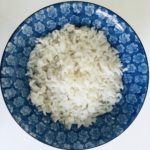Peanut Allergy:
A peanut allergy is an immune reaction to peanut proteins.
Symptoms of peanut allergy:
Anaphylaxis is the most severe allergic reaction to peanuts, involving every above organ system. It can lead to anaphylactic shock and death.
Other symptoms of peanut allergy can be divided into 3 categories:
- Gastrointestinal – nausea, vomiting, stomach pain, diarrhea
- Respiratory – wheezing, asthma, rhinitis (stuffy or runny nose), itchy watery eyes, sneezing
- Skin – hives, rash around the mouth, swelling around the mouth, tightening of throat, eczema
The peanut-free diet:
Following a peanut-free diet requires the elimination of the following types of foods:
- Peanuts
- Peanut butter
- Peanut oil
- Other nuts (due to cross-contamination)
- For a more detailed list, see the Peanut-Free Guide
Peanut oil may not contain any peanut protein (but not cold pressed, expelled, or extruded), and therefore may be tolerated by peanut-allergic individuals. However, products can be contaminated with peanut protein during processing, so a highly sensitive person should avoid peanut oil.
Nutritional needs:
Peanuts provide niacin, magnesium, vitamin E, and other nutrients, but these nutrients can easily be found in other foods such as other legumes, meat, grains, and oils. Therefore, nutrient deficiency is not a concern when eliminating peanuts from the diet.
NOTE: Some doctors recommend that the mother not consume any peanut products during pregnancy or while breastfeeding, as it might increase risk of peanut allergy in the child.






what people are talking about